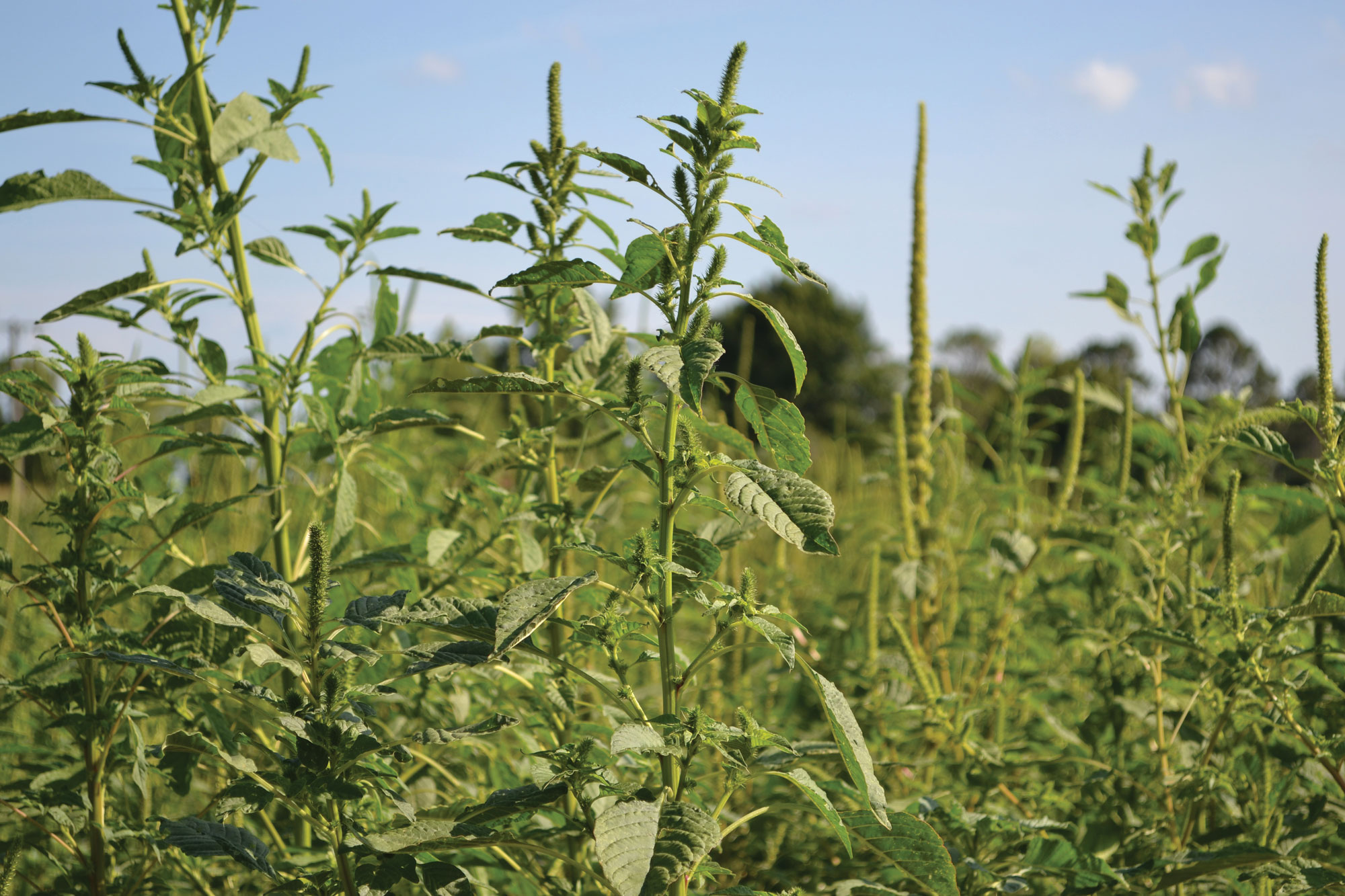
Herbicide-resistant Palmer amaranth confirmed in Missouri
January 17, 2016
Written By Linda Geist
University of Missouri Extension weed scientists report the first confirmed case of multiple-herbicide-resistant Palmer amaranth in Missouri. It likely is the wave of the future.
MU Division of Plant Sciences research specialist Mandy Bish says this has weed scientists concerned because of Palmer amaranth’s competitive and aggressive nature.
“As the incidences of herbicide-resistant Palmer amaranth increase, producers lose chemical control options,” Bish says.
Bish works with MU Extension weed scientist Kevin Bradley, who has tracked the spread of Palmer amaranth in Missouri and cautioned producers about the weed for almost a decade.
Southern Illinois University researchers Karla Gage and Ronald Krausz identified the Palmer amaranth population with resistance to glyphosate and group 14 PPO inhibitors. The weed came from Mississippi River bottoms north of St. Louis. Scientists first discovered PPO resistance in Tennessee in 2015 and recently in southern Illinois.
In recent years, agronomists and weed scientists throughout the Midwest have reported PPO-resistant populations of the most common pigweed species, waterhemp, which is a relative of Palmer amaranth.
“Multiresistant waterhemp is now the rule rather than the exception,” Bish says. “We assume the same will be true in the future with Palmer amaranth.”
Palmer amaranth is much more aggressive than waterhemp. Under optimal conditions, waterhemp typically grows 1 to 1 1/4 inches daily, while Palmer amaranth can grow up to 2 1/2 inches per day.
“Its fast growth makes it very difficult to effectively treat and control,” Bish says.
While it can be difficult to distinguish waterhemp from Palmer amaranth early on, the leaves of Palmer amaranth are typically wider and distinctively diamond-shaped, and have longer petioles. At harvest, Palmer amaranth can be distinguished from waterhemp by the longer seed head. Additionally, the female seed heads are prickly to the touch. Each plant contains about 500,000 seeds.
Research has shown that Palmer amaranth can reduce yield by as much as 79 percent when there are only five plants per 2 feet of soybean row. With multiple-herbicide-resistant populations of Palmer amaranth confirmed in different regions of the United States, Bish says it will be important to implement nonchemical methods as part of control.
Both waterhemp and Palmer amaranth seeds are only viable in the soil for four to six years. Research by Bradley’s group indicates that one pass of deep tillage in affected areas can reduce both Palmer amaranth and waterhemp densities. Pigweed seeds need sunlight. If buried, they cannot germinate.
Bish urges farmers to actively scout for Palmer amaranth.
For more information about Palmer amaranth, search the MU Extension website at extension.missouri.edu.


